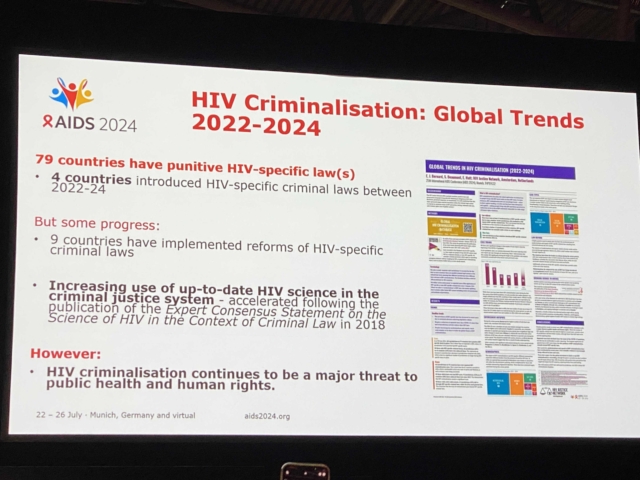Today, the HIV Justice Network (HJN), supported by the International AIDS Society (IAS), released a video documentary, “It is Time!” – How Zimbabwe Decriminalised HIV, along with a case study report examining Zimbabwe’s successful repeal of its HIV-specific criminal law.
The report, Reforming the Criminal Law in Zimbabwe: A Case Study, explores how advocates, legal experts, and community leaders worked together to repeal Section 79 of Zimbabwe’s Criminal Code, which criminalised HIV non-disclosure, exposure, or transmission. It outlines key strategies used in the campaign and lessons for other countries seeking to end HIV criminalisation.
The 24-minute documentary “It is Time!” brings this story to life through interviews with those involved in the multi-year effort. It also explores how advocates responded when a new law threatened to reintroduce HIV criminalisation.
Zimbabwe’s experience highlights several key strategies:
- Coalition-building: Bringing together civil society, legal experts, and policymakers strengthened the advocacy effort.
- Public health and human rights messaging: Advocates demonstrated how criminalisation undermined Zimbabwe’s HIV response.
- Scientific evidence: Expert testimony helped policymakers understand the realities of HIV transmission.
- Legislative strategy: Repealing Section 79 as part of a broader legal reform helped ensure success.
The documentary “It is Time!” is now available on the HIV Justice Network YouTube channel.
Reforming the Criminal Law in Zimbabwe: A Case Study (English, pdf, 9 pages) can be downloaded here.
The documentary and case study will also be added to the HIV Criminalisation Online Course, available for free as part of the HIV Justice Academy.
The case study and video were launched during a webinar co-hosted by HJN and IAS, featuring discussions on the significance of Zimbabwe’s law reform for the global movement against HIV criminalisation from:
- Marlène Bras, Director of HIV Programmes at the IAS;
- Dr Ruth Labode, former legislator, and chairperson of the Parliamentary Portfolio Committee on Health in Zimbabwe;
- Immaculate Owomugisha, a Ugandan lawyer and human rights activist who also sits on HJN’s Supervisory Board; and
- HJN’s Senior Policy Analyst, Alison Symington.
A recording of webinar can now be viewed in English and in French on the IAS+ website.
